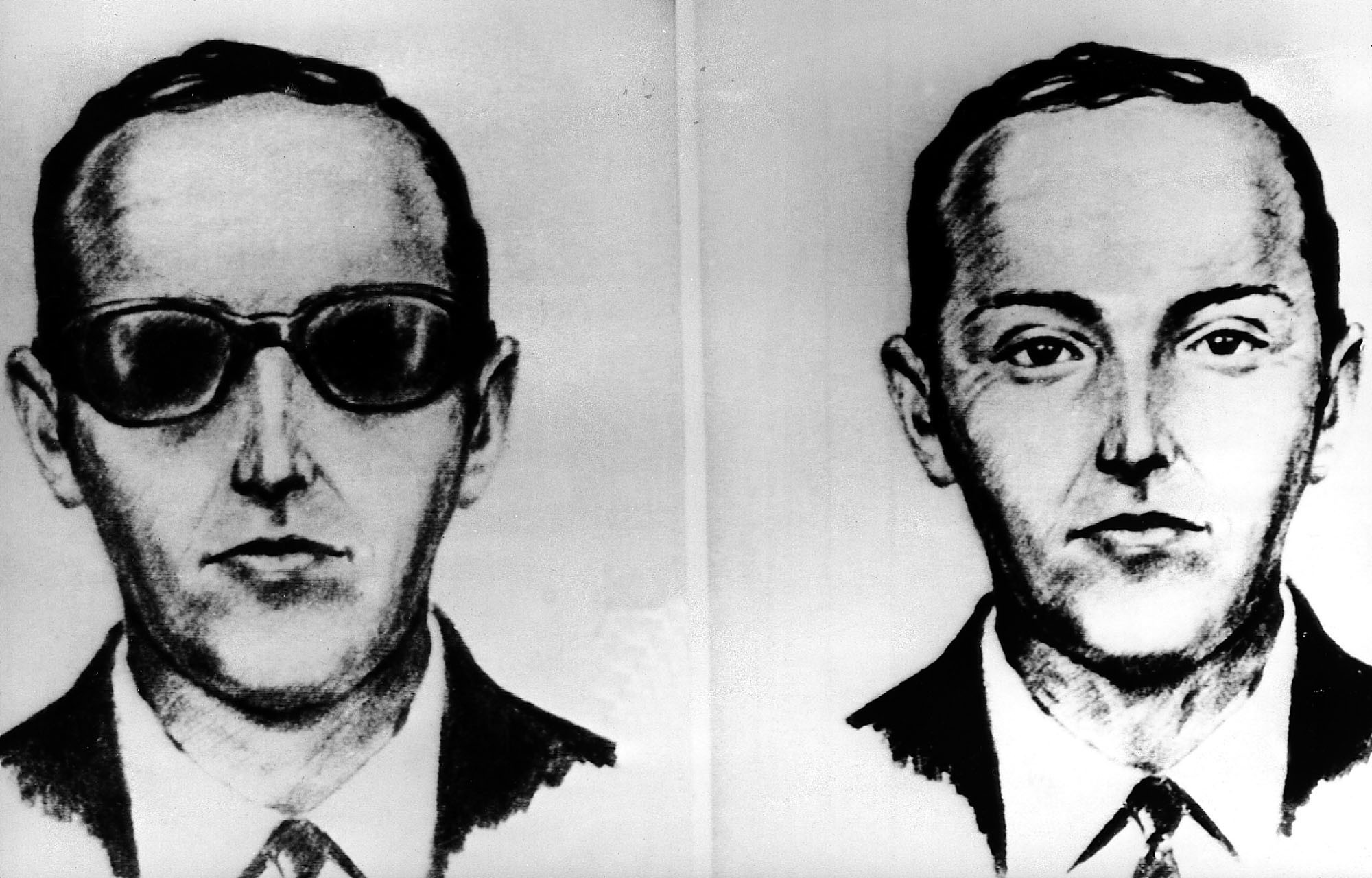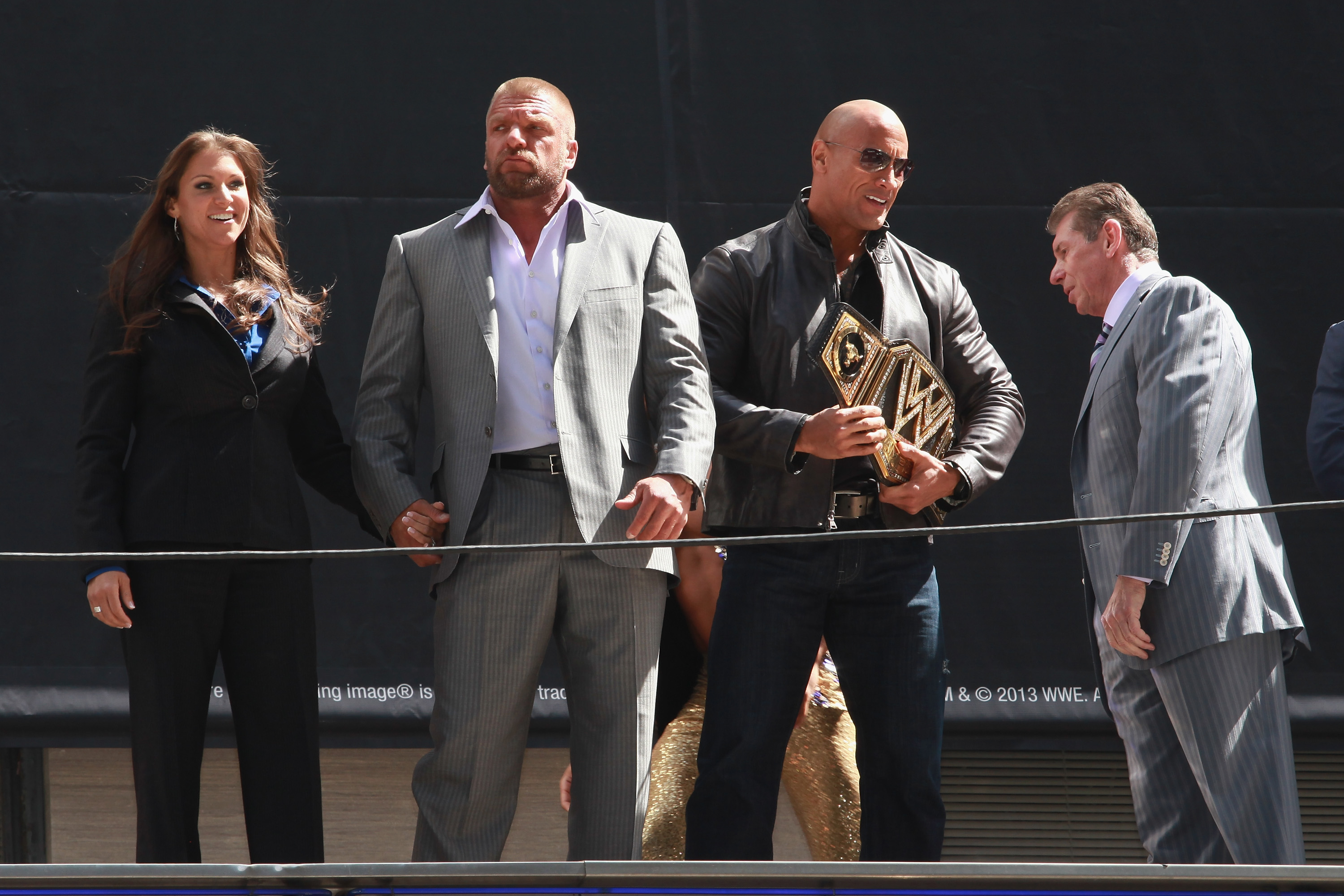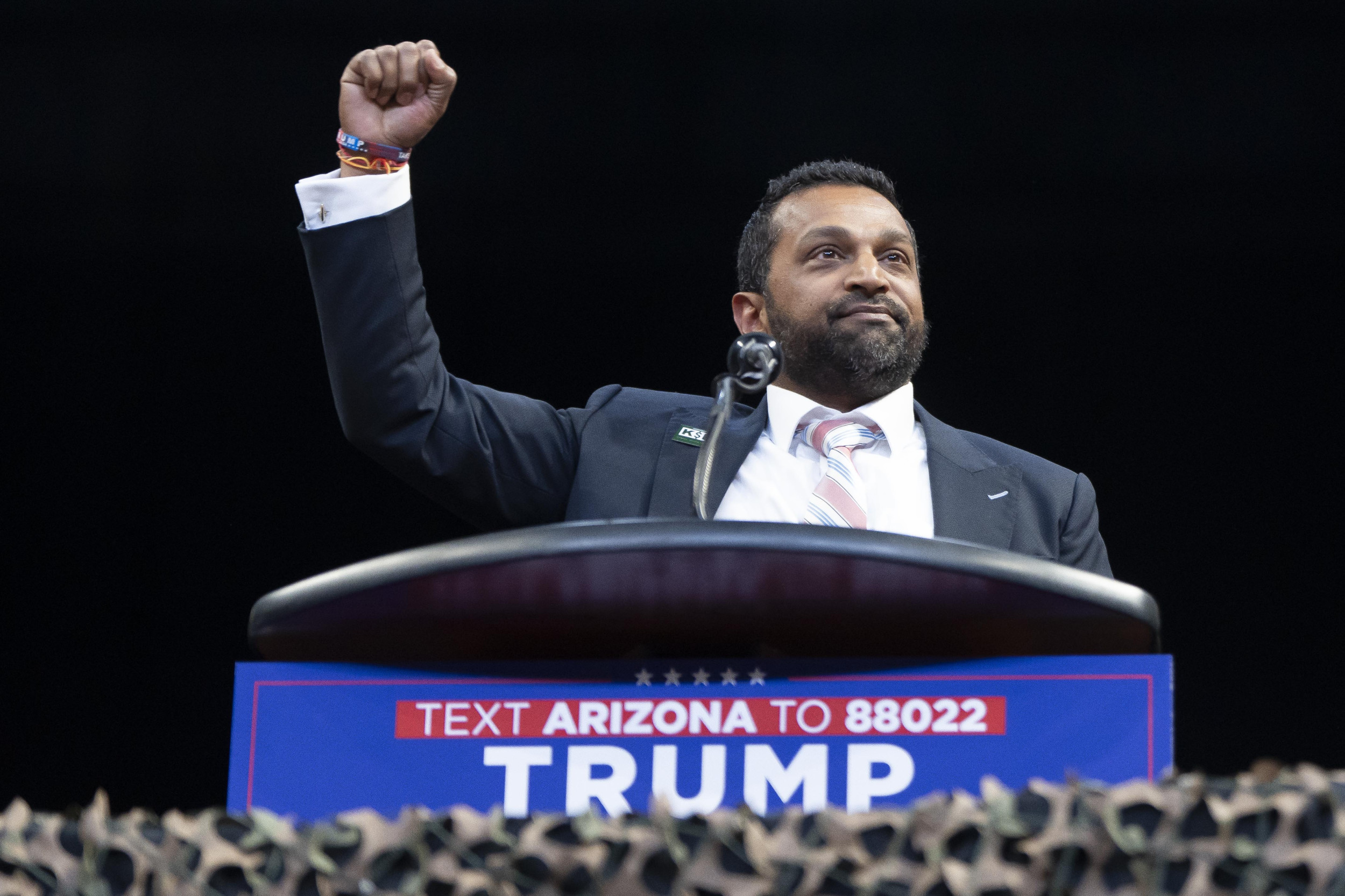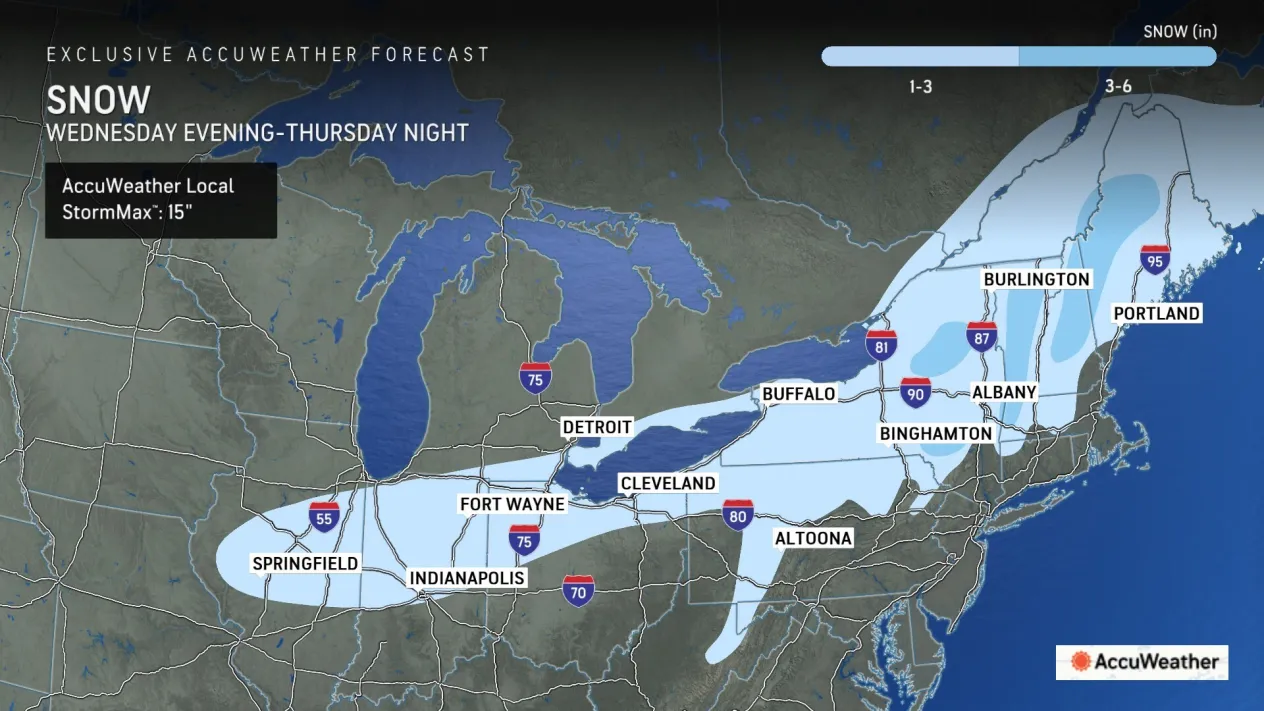Anti-abortion activists want Donald Trump in his second term to enforce a 150-year-old law they believe would be the next best thing to nationwide abortion ban, and have started gaming out how it would work.
The president-elect walked a fine line on abortion during the campaign, two years after Republicans faced electoral backlash over the Supreme Court overturning Roe v. Wade, the case that guaranteed reproductive rights across the country.
On the trail, Trump argued that abortion was a state's issue, and that each state should be able to make their own laws surrounding how, when and if to restrict the procedure. He pushed back on calls for a national ban pushed by many anti-abortion advocates, as well as attacks from Harris that he would enact more sweeping abortion bans if elected.
But now that Trump is on the precipice of returning to the White House, anti-abortion activists are hoping that even if a national ban is off the table, he will use his sweeping executive authority to further limit abortion access in the U.S.
One way they see that happening is through the enforcement of the Comstock Act, a 19th century law that bans sending "lewd materials" such as pornography by mail. Parts of Comstock have been repealed or overturned over the years, though provisions related to abortion remain on the books.

Comstock is what's known as a "zombie" law — a piece of legislation that may be dormant but is still technically enforceable — that could be used to end the availability of medication abortion, the most common type of abortion in the country or restrict the delivery of medical instruments and supplies used in abortions.
While Trump hasn't suggested he plans to enforce Comstock, some reproductive right advocates have warned this could lead to what essentially amounts to a nationwide abortion ban.
The Comstock Act was first enacted in 1872 and named after the anti-vice activist Anthony Comstock, a key proponent of the law. Initially passed as part of the anti-pornography movement, its use was extended to abortion and contraceptive material over the years.
However, it hasn't been enforced for decades, due to the 1973 Roe decision overturned by the court in the 2022 decision in Dobbs vs. Jackson Women's Health Organization.
Enforcement over the next four years may come down to Trump's attorney general. He last week said he plans to nominate former Florida Attorney General Pam Bondi to the position. Bondi has a record of opposing abortion but has not said whether she plans to enforce the Comstock Act.
Former federal prosecutor Barbara McQuade told Newsweek on Monday that the law would "apply to pills or medical equipment," but noted "delivery of these items by means other than mail could be a lawful workaround."
While that may not equate to a nationwide ban, it would "create chaos so that the law is unclear" and have a "chilling effect on healthcare providers," she said.
"There is some disagreement as to the scope of the Comstock Act in light of case law and amendments. Some argue that the law is now limited to prohibiting mailing abortion drugs into states where abortion is otherwise unlawful," she said.
Anti-Abortion Activists and Trump Have Differing Views on Comstock
Anti-abortion groups are hoping the Trump administration will embrace a more wide-reaching interpretation of the law that would have stronger limitations on abortion access, even in states where a broad majority of residents support reproductive rights.
The conservative group Students for Life wrote that they hope Bondi will enforce the Comstock Act in a statement released following her nomination.
"Make no mistake, Students for Life Action (SFLAction) would love to see a United States Attorney General who is serious about enforcing The Comstock Act. That alone would be a significant blow to the abortion industry and abortion in the nation at large, as it's a law that governs how the U.S. Postal Service (USPS) handles the mailing of abortifacients, intended to end a preborn life," the statement reads.
"Between Bondi standing up for life during her tenure as Attorney General in Florida, and the potential for her to actually enforce the Comstock Act, there's a great deal for pro-life organizations like SFLAction to be excited about."
Trump indicated that he doesn't plan to enforce the Comstock Act in an August CBS News interview.
"No. We will be discussing specifics of it. But generally no, I would not do that," he said when asked about whether he would use Comstock to further regulate abortion access.

In response to his comments, anti-abortion activist Lila Rose told Politico he should consider repealing Comstock.
"He came out recently and said that he supported access to these deadly abortion drugs, and that is horrific," she said.
Newsweek reached out to Trump's transition team for comment via email.
Jonathan F. Mitchell, an attorney who has represented Trump, told The New York Times in February that the Comstock Act would be one way for the administration to limit abortion access without passing a federal ban.
"We don't need a federal ban when we have Comstock on the books," he said.
Even though Republicans will hold a majority in the Senate and House of Representatives, it's unlikely they would have the votes to enact a federal ban. Any national abortion ban would particularly face challenges in the Senate, where the 60-vote filibuster requirement would require Republican senators supportive of reproductive rights, like Sen. Susan Collins of Maine, as well as some number of Democrats to join in voting for such a law.
There has been some daylight between Trump and Vice President-elect JD Vance on the Comstock Act in the past.
In January 2023, Vance, who presently serves as an Ohio senator, led other Congressional Republicans in a letter to Attorney General Merrick Garland criticizing the Biden administration for not enforcing Comstock after the Dobbs decision.
"It is disappointing, yet not surprising, that the Biden administration's DOJ has not only abdicated its Constitutional responsibility to enforce the law, but also has once again twisted the plain meaning of the law in an effort to promote the taking of unborn life," the letter read.
The Republicans urged the Department of Justice (DOJ) to "put the law and your obligation to enforce it above the abortion industry's dangerous and deadly political agenda" and "hold abortionists, pharmacists, international traffickers, and online purveyors, who break the Federal mail-order abortion laws, accountable."
Reproductive Right Supporters Aim to Repeal Comstock Act
While anti-abortion advocates have pushed for the law's enforcement, supporters of reproductive rights have sought to get rid of the Comstock Act in full.
In Congress, there are at least two separate bills aimed at repealing the law. One was introduced by Rep. Cori Bush, a Missouri Democrat who lost her primary election this year, and the other by Rep. Pat Ryan, a New York Democrat.

Ryan urged Congress to act on his bill following Trump's victory earlier in November, though it's dead on arrival in the GOP-held House of Representatives.
"With the far-right's attacks on women's reproductive freedom only escalating - we have to act now. Congress must pass my Protecting Reproductive Freedom Act & my Stop Comstock Act to safeguard access to safe & effective abortion medication," he posted on social media.
In a statement announcing her bill, Bush wrote that "reviving the outdated and obsolete zombie statute" is a Republican plan to "impose a nationwide abortion ban."
There would be legal avenues to challenge the Comstock Act if the administration tries to enforce it, McQuade said, including building networks to "work around the statute" which applies only to mail-based delivery.
Neama Rahmani, also a former federal prosecutor, told Newsweek that the Biden administration having put out a memo declining to enforce the Comstock Act could be used as a defense for anyone charged under the law in the future.
"After Dobbs, the Department of Justice's Office of Legal Counsel issued a memorandum saying that the Comstock Act doesn't prohibit mailing abortion pills because they can be used for non-abortion purposes like miscarriages and the mailers may not have the necessary intent to commit a crime," he said, noting that such a dispute would likely end up in the courts.
Steve Aden, chief legal officer and general counsel at Americans United for Life, told Newsweek on Monday that his group is hopeful the Trump administration will reconsider the Biden administration's stance on not enforcing Comstock.
"We expect to see them take a long hard look at the Biden administration's careless and reckless promotion of chemical abortion over almost every other policy priority, and especially the wrongheaded and clearly erroneous Office of Legal Counsel memo that whitewashed it all," Aden said.



















 English (US) ·
English (US) ·